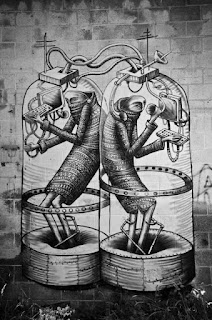"These works have become even more topical and more fresh as time goes on."
(Read Full Article : Dostoevsky by Georg Lukacs 1949 at: https://www.marxists.org/archive/lukacs/works/1949/dostoyevsky.htm)
This insight is particularly important for a judgment of Dostoevsky for many – even most – of his political and social answers are false, have nothing to do with present-day reality or with the striving of the best today. They were obsolete, even reactionary, when they were pronounced.
Still, Dostoevsky is a writer of world eminence. For he knew how during a crisis of his country and the whole human race, to put questions in an imaginatively decisive sense. He created men whose destiny and inner life, whose conflicts and interrelations with other characters, whose attraction and rejection of men and ideas illuminated all the deepest questions of that age, sooner, more deeply, and more widely than in average life itself. This imaginative anticipation of the spiritual and moral development of the civilized world assured the powerful and lasting effect of Dostoevsky’s works. These works have become even more topical and more fresh as time goes on.
The experiment with oneself, the execution of an action not so much for the sake of the contents and effects of the action, but in order to know oneself once for all, in depth, to the very bottom, is one of the main human problems of the bourgeois and intellectual world of the nineteenth and twentieth centuries.
Only when this individualism turns inward – when it fails to find an Archimedean point either in current social aims or in the spontaneous urge of an egotistical ambition – does the problem of Dostoevsky’s experiments arise.
All these cases, however diverse, have something important in common. First of all, they are without exception the actions of lonely men – men who are completely dependent on themselves as they understand life and their environment, who live so deeply and intensely in themselves that the soul of others remains to them forever an unknown country. The other man is to them only a strange and menacing power which either subjugates them or becomes subject to them. . . Isolation, separation, loneliness reduces the relations among men to a struggle for superiority or inferiority. The experiment is a sublimated spiritual form, a psychological turning inward of naked struggles for power.
But by this solitude, by this immersion of the subject in itself, the self becomes bottomless. There arises either the anarchy of Stavrogin, a loss of direction in all instincts, or the obsession of a Raskolnikov by an “idea.” A feeling, an aim, an ideal acquires absolute sovereignty over the soul of a man: I, you, all men disappear, turn into shadows, exist only subsumed under the “idea.”











